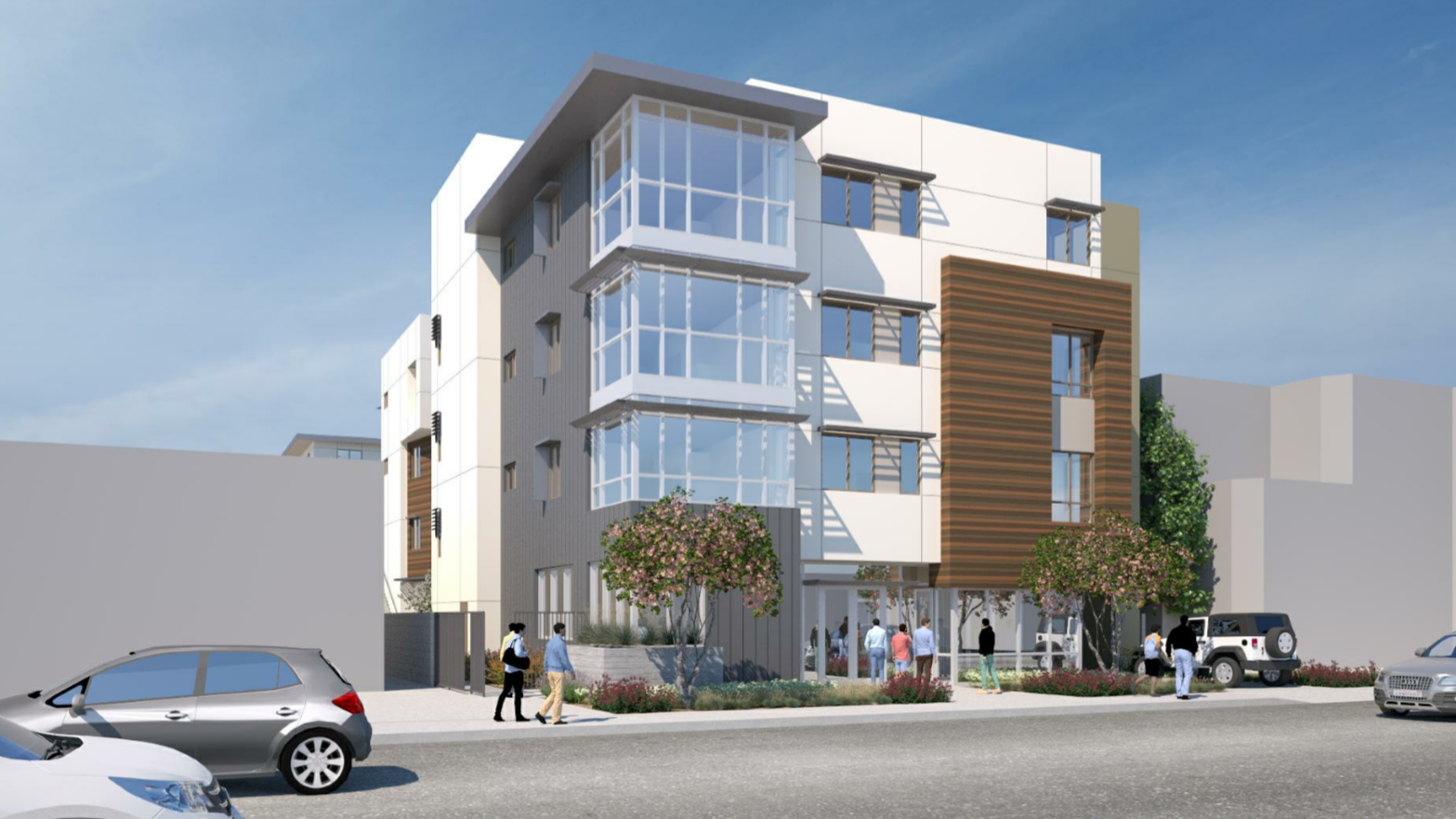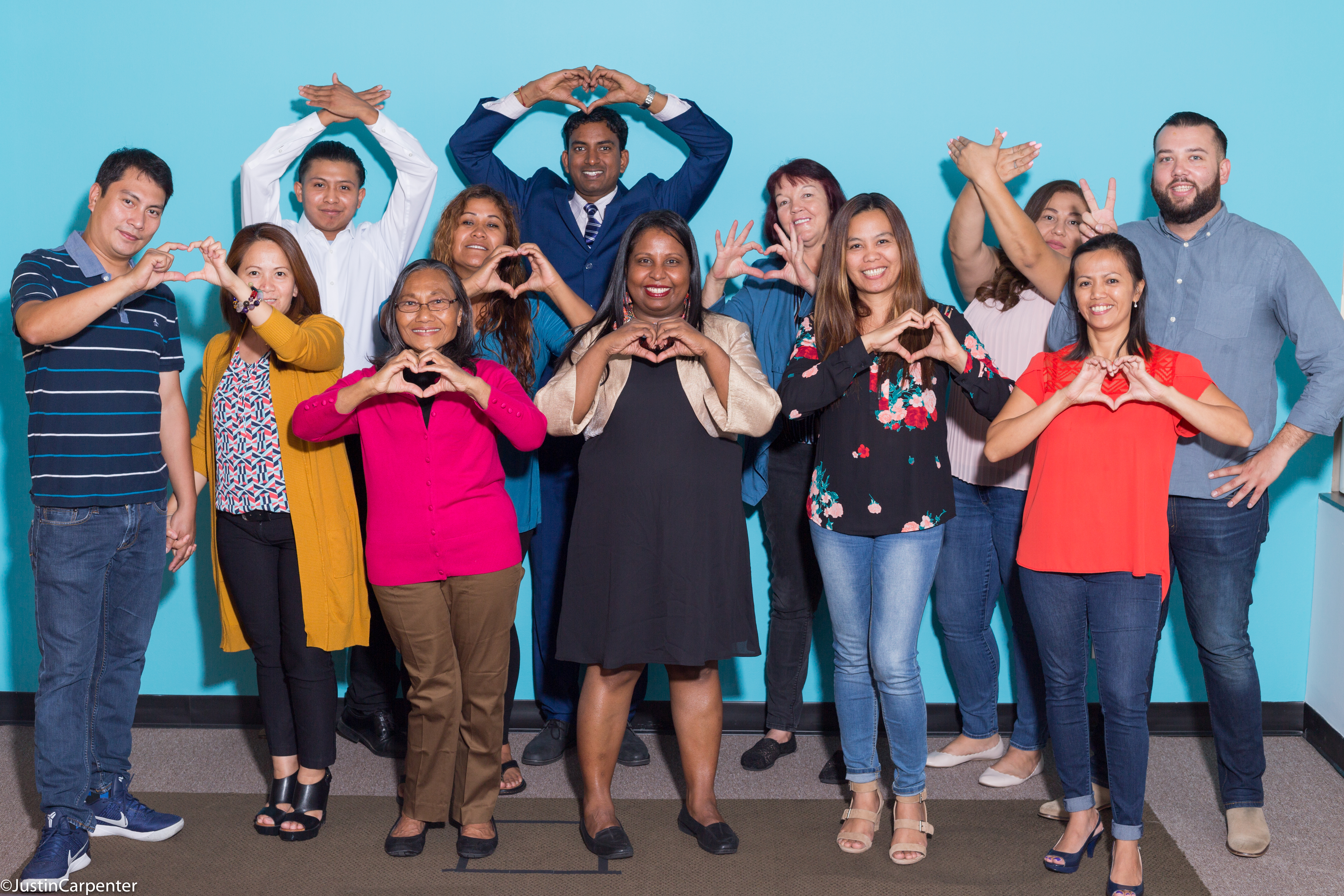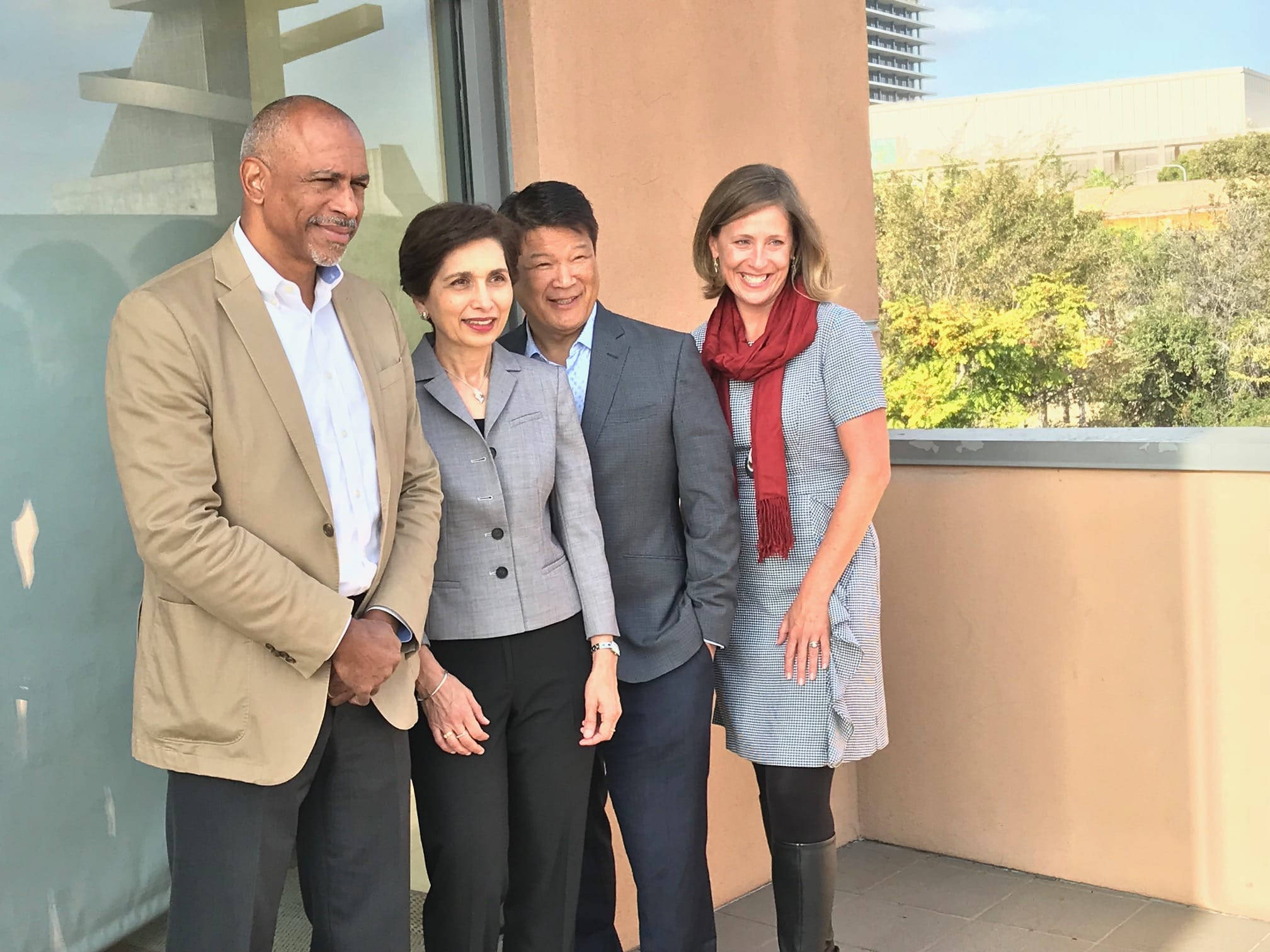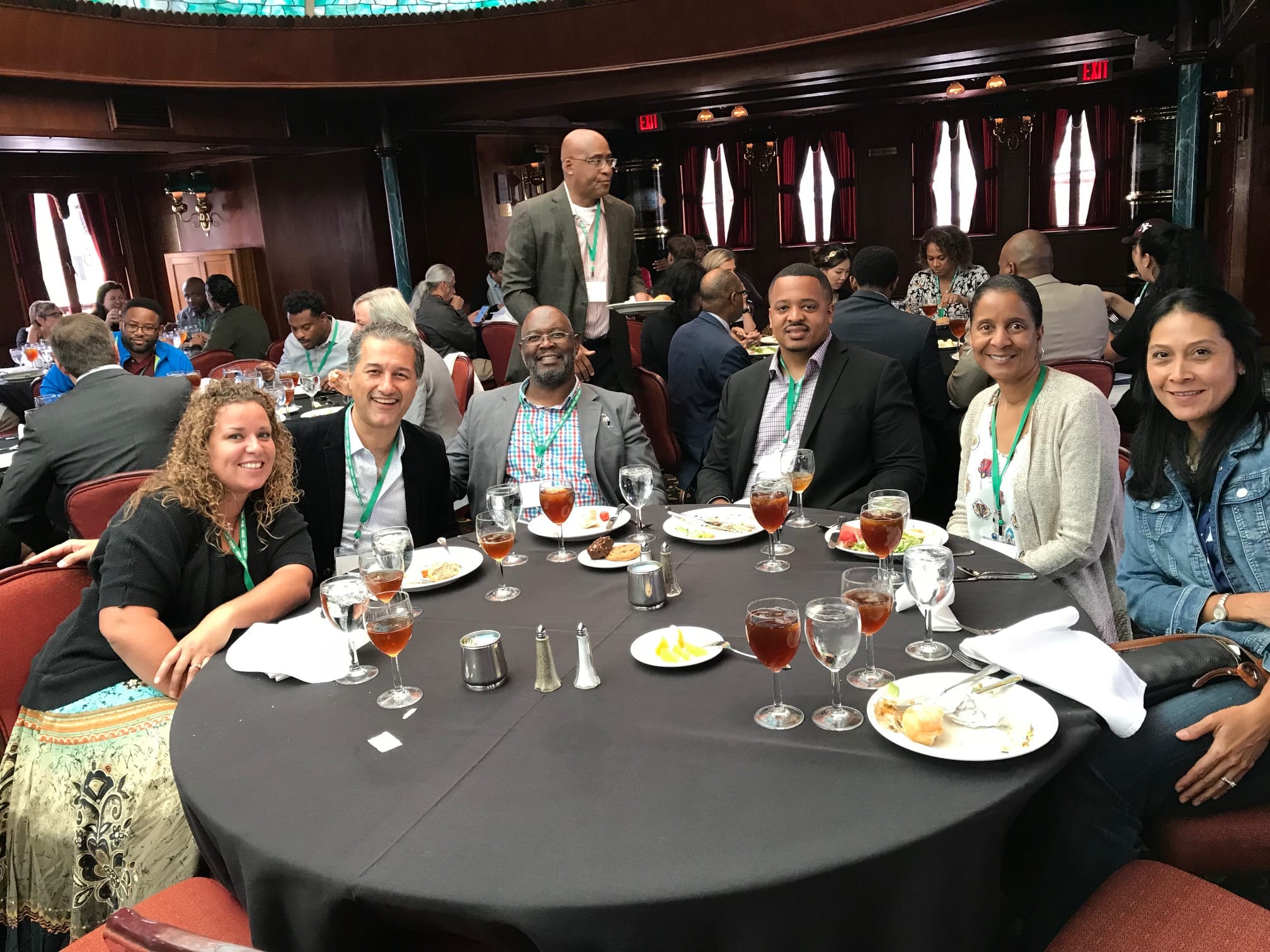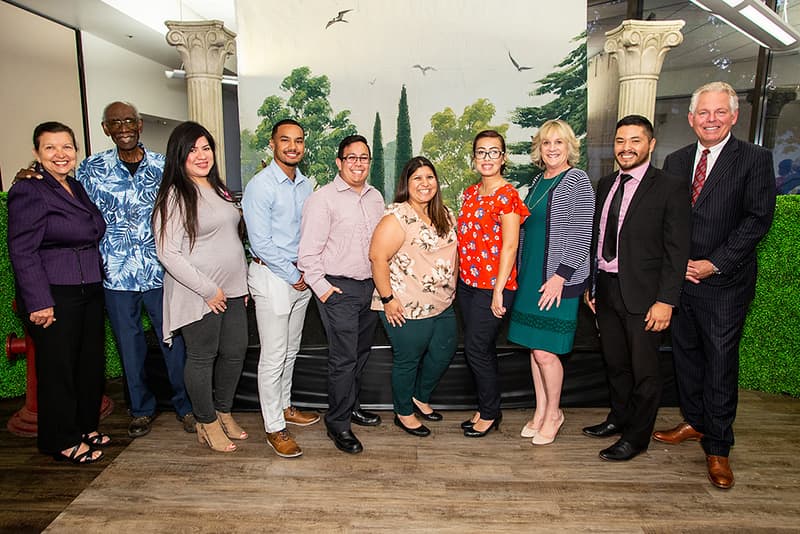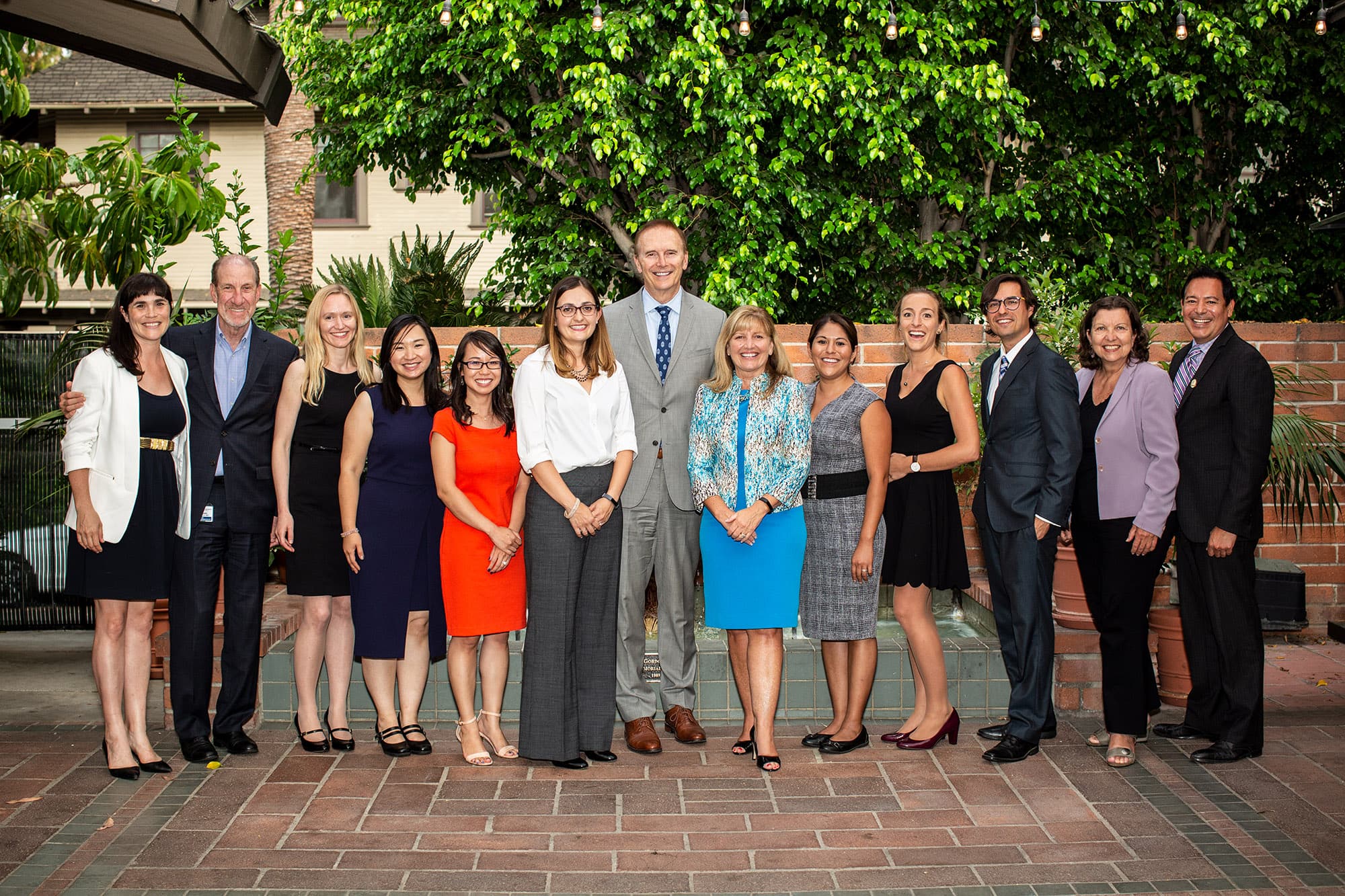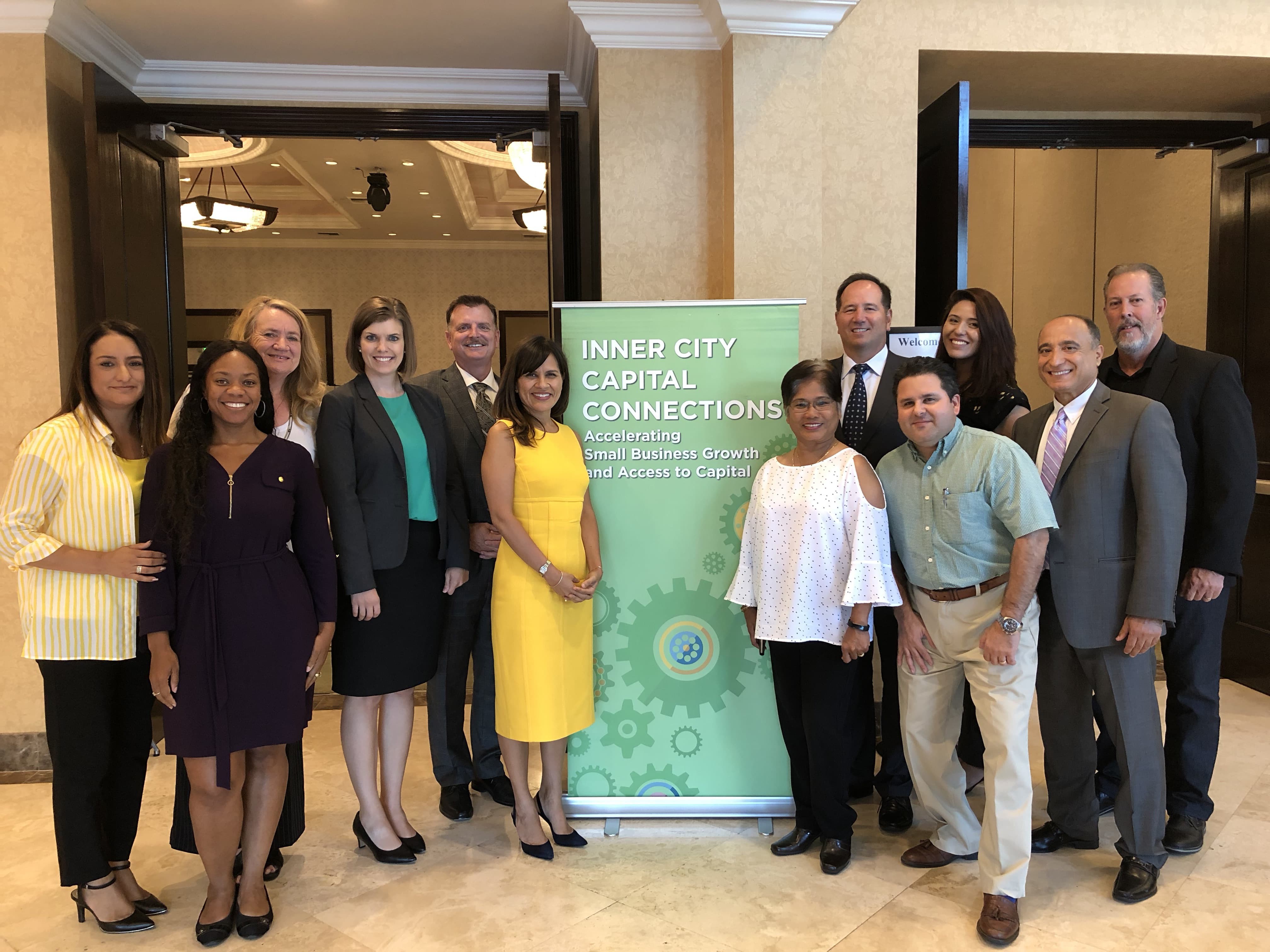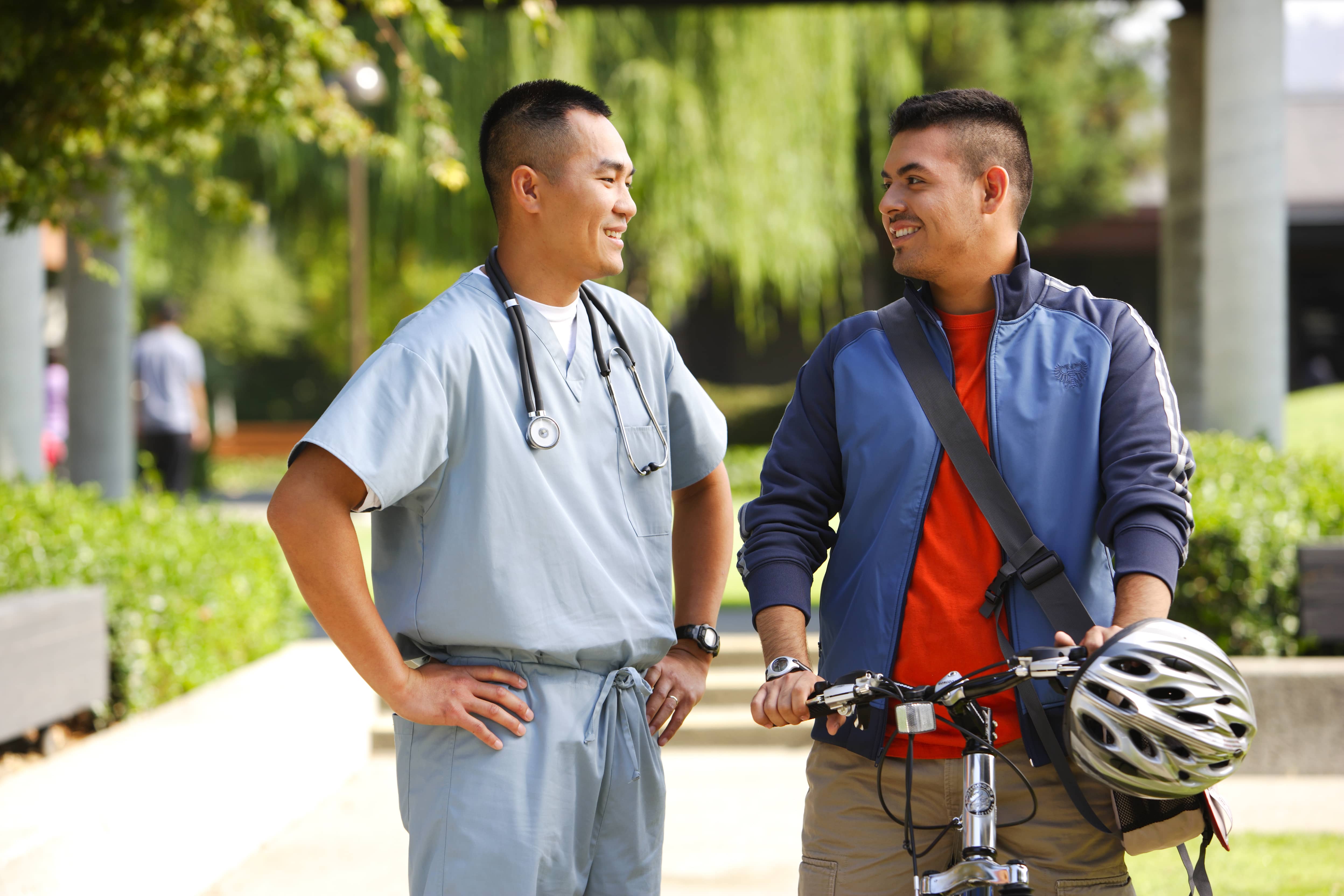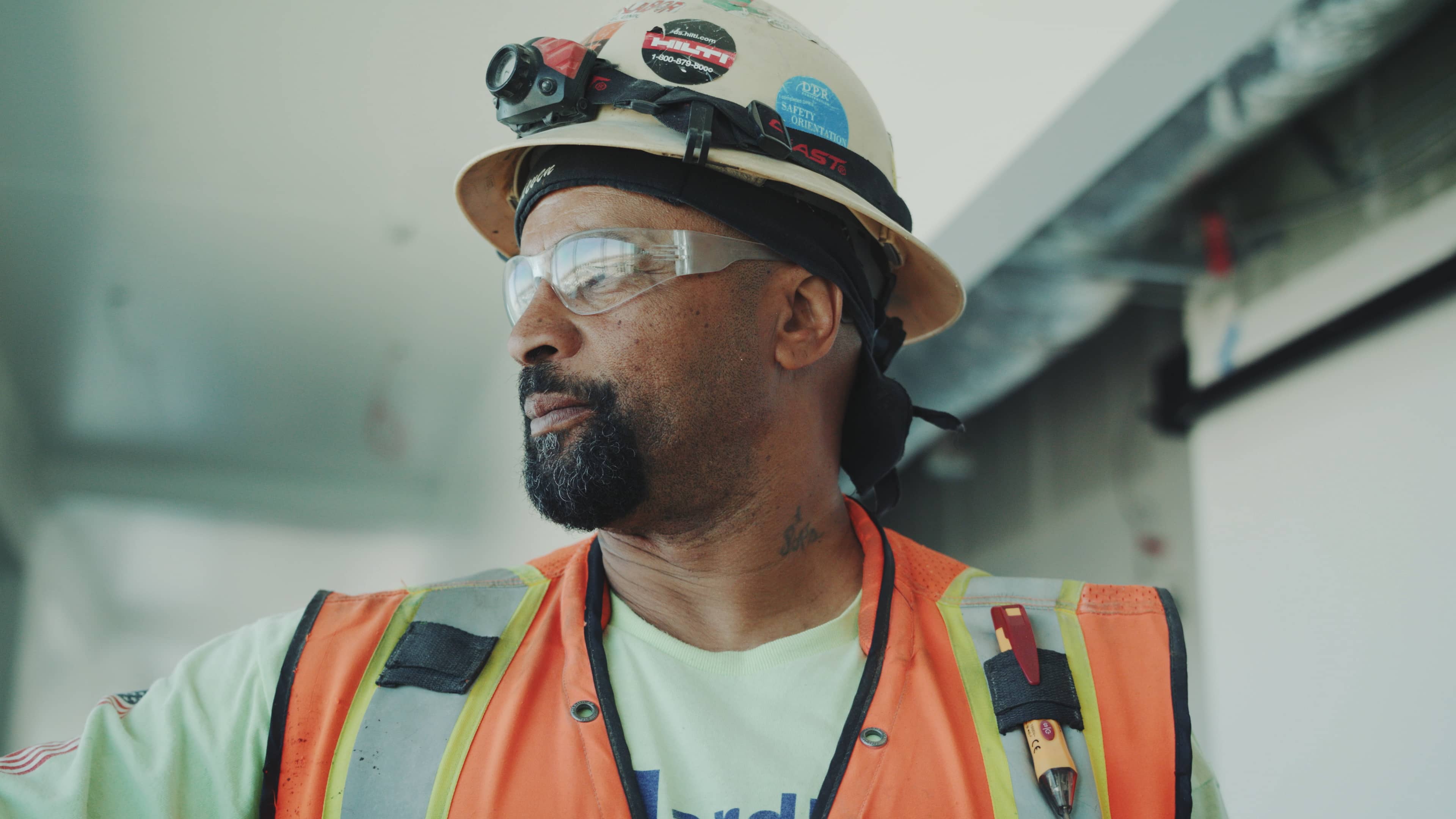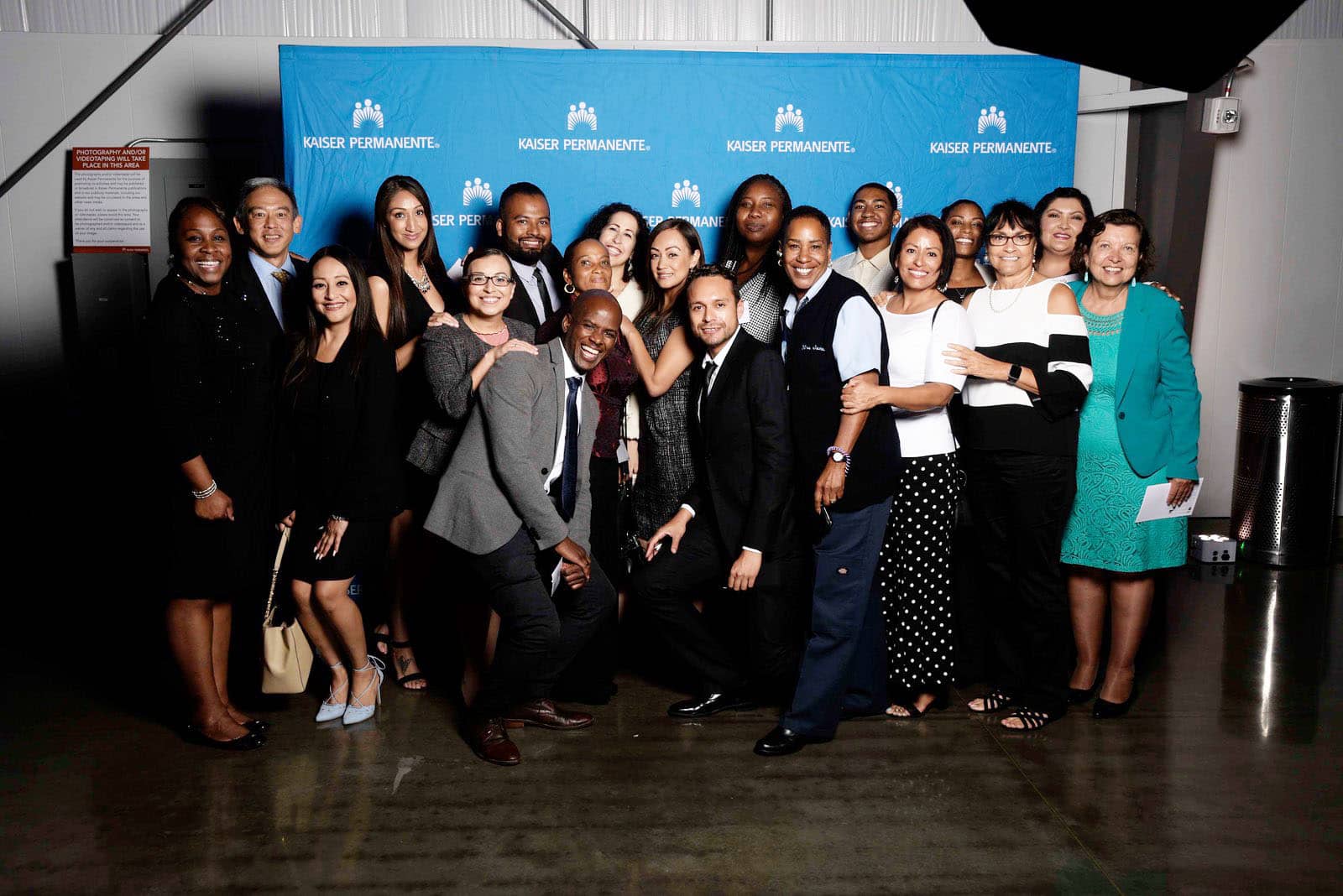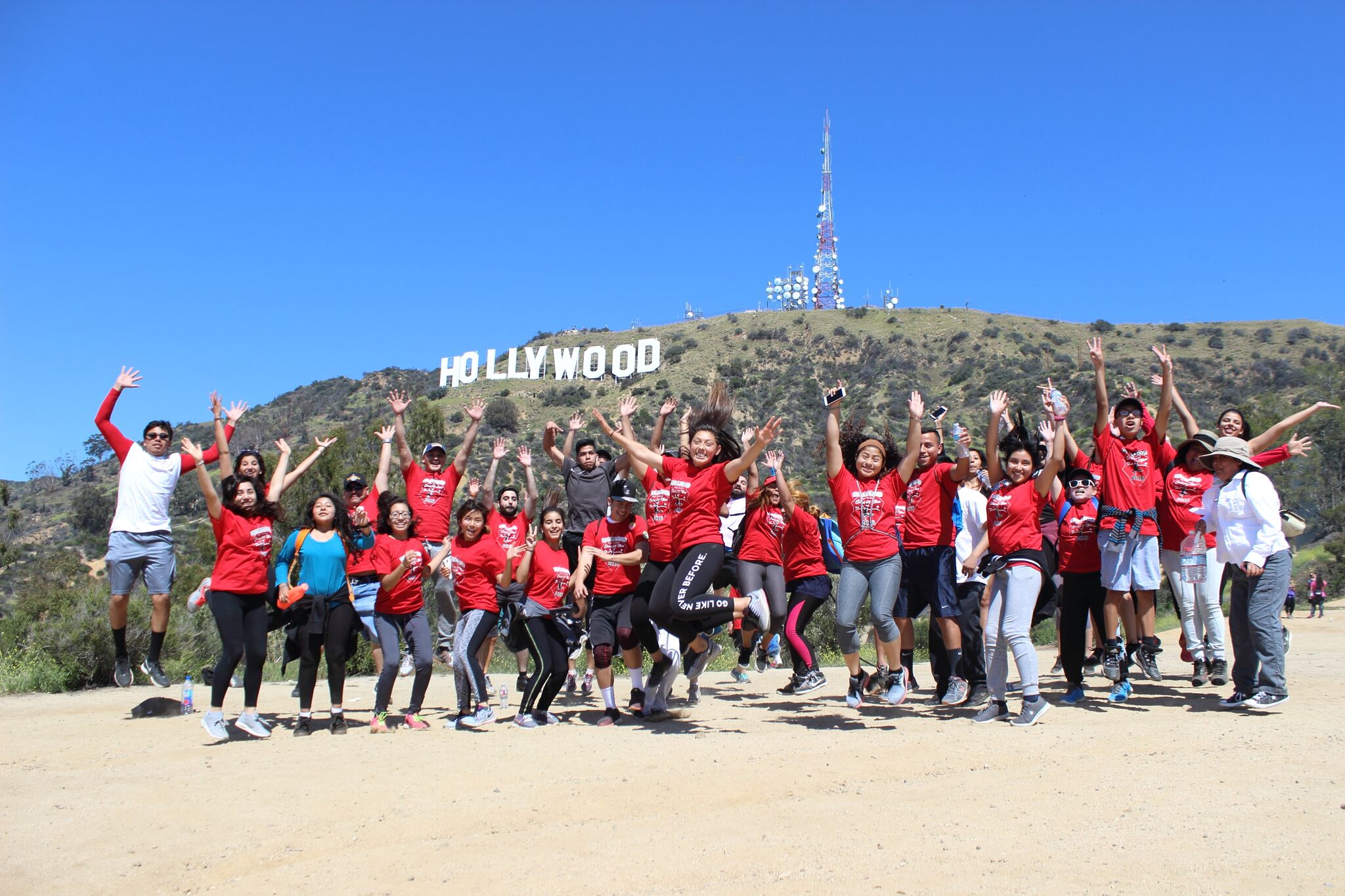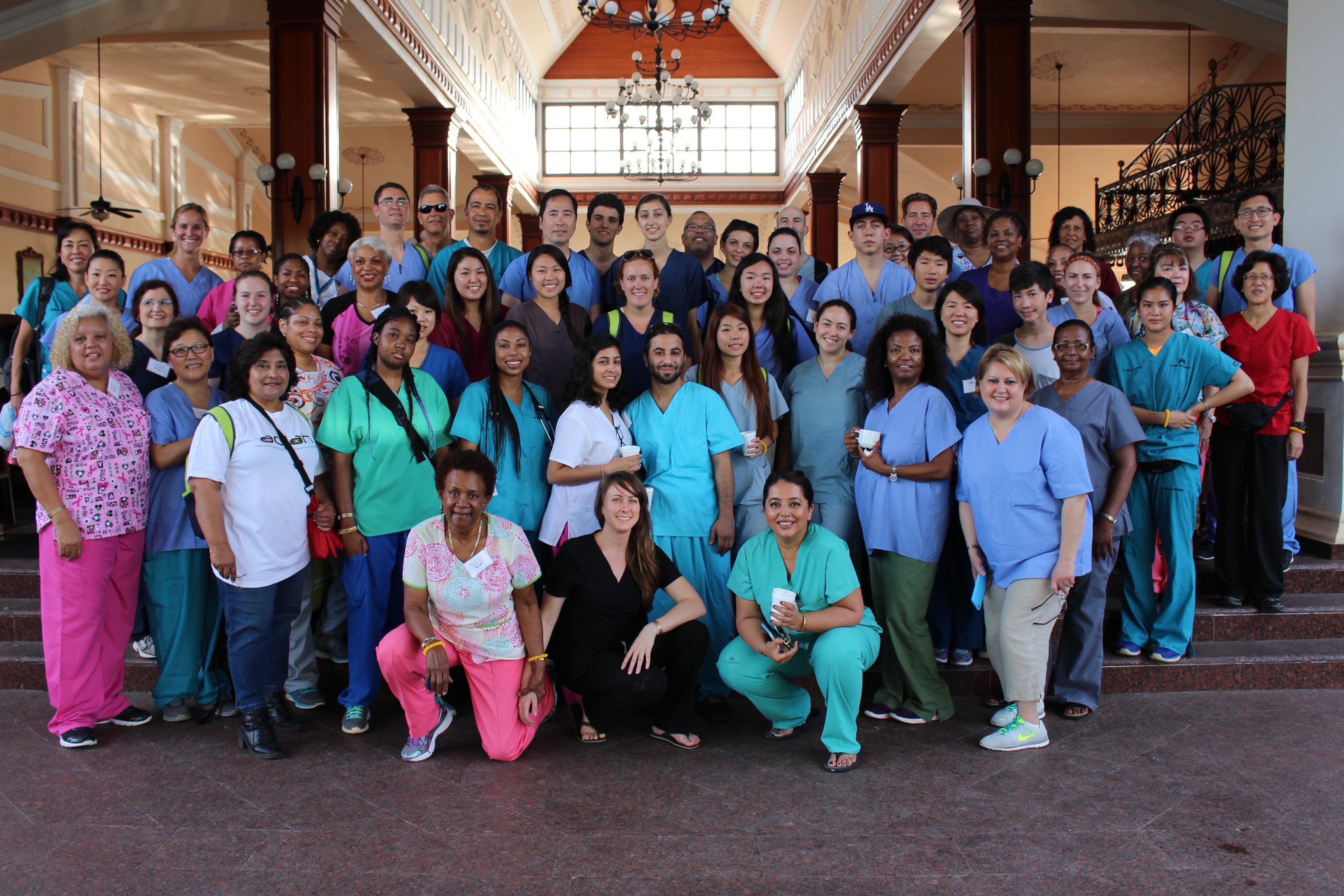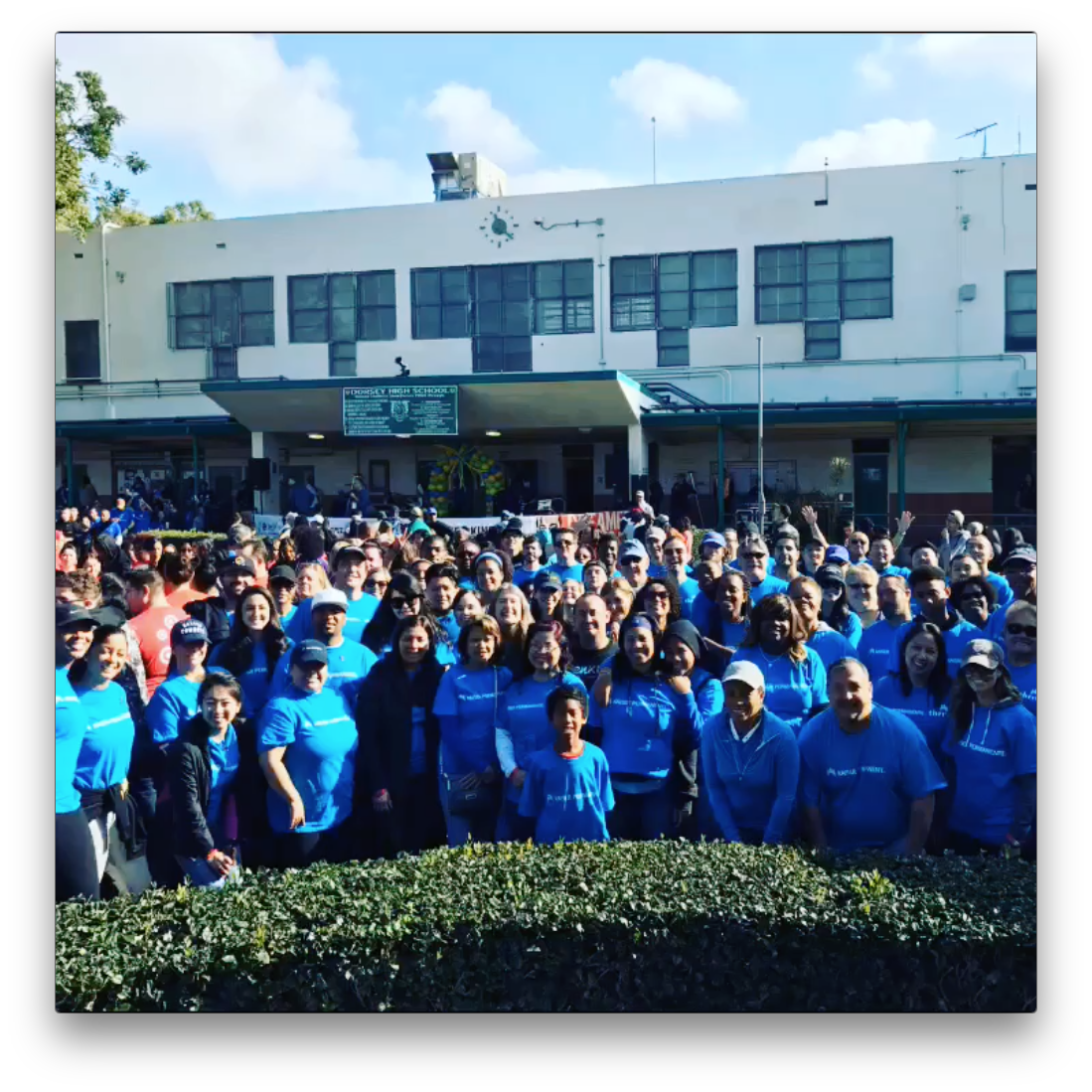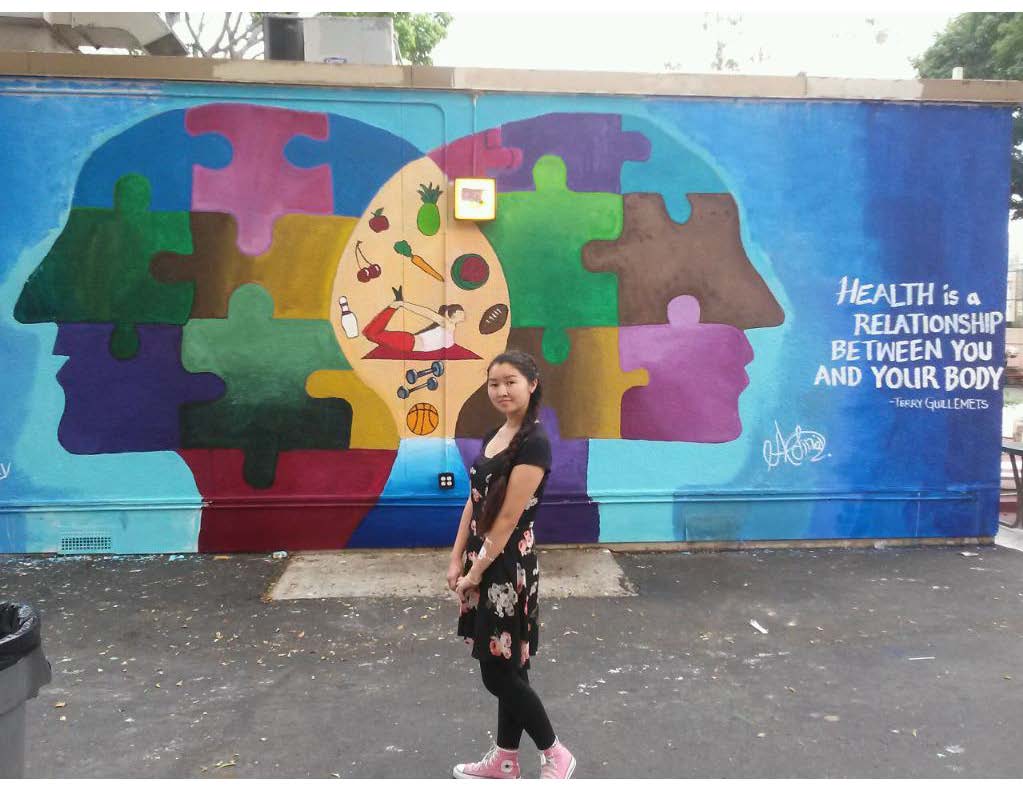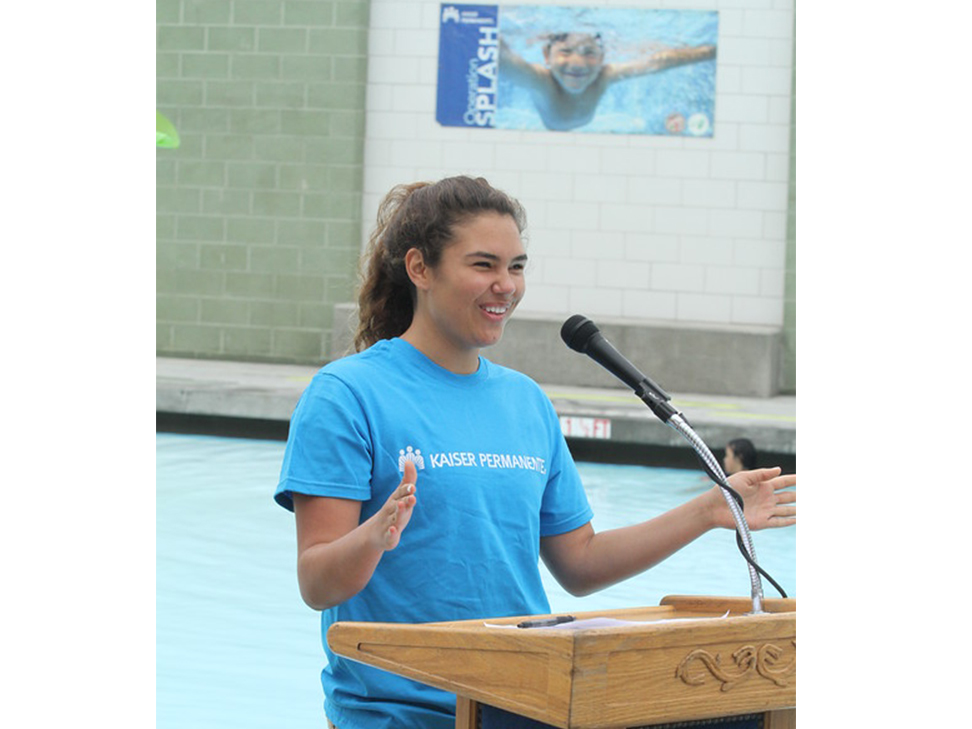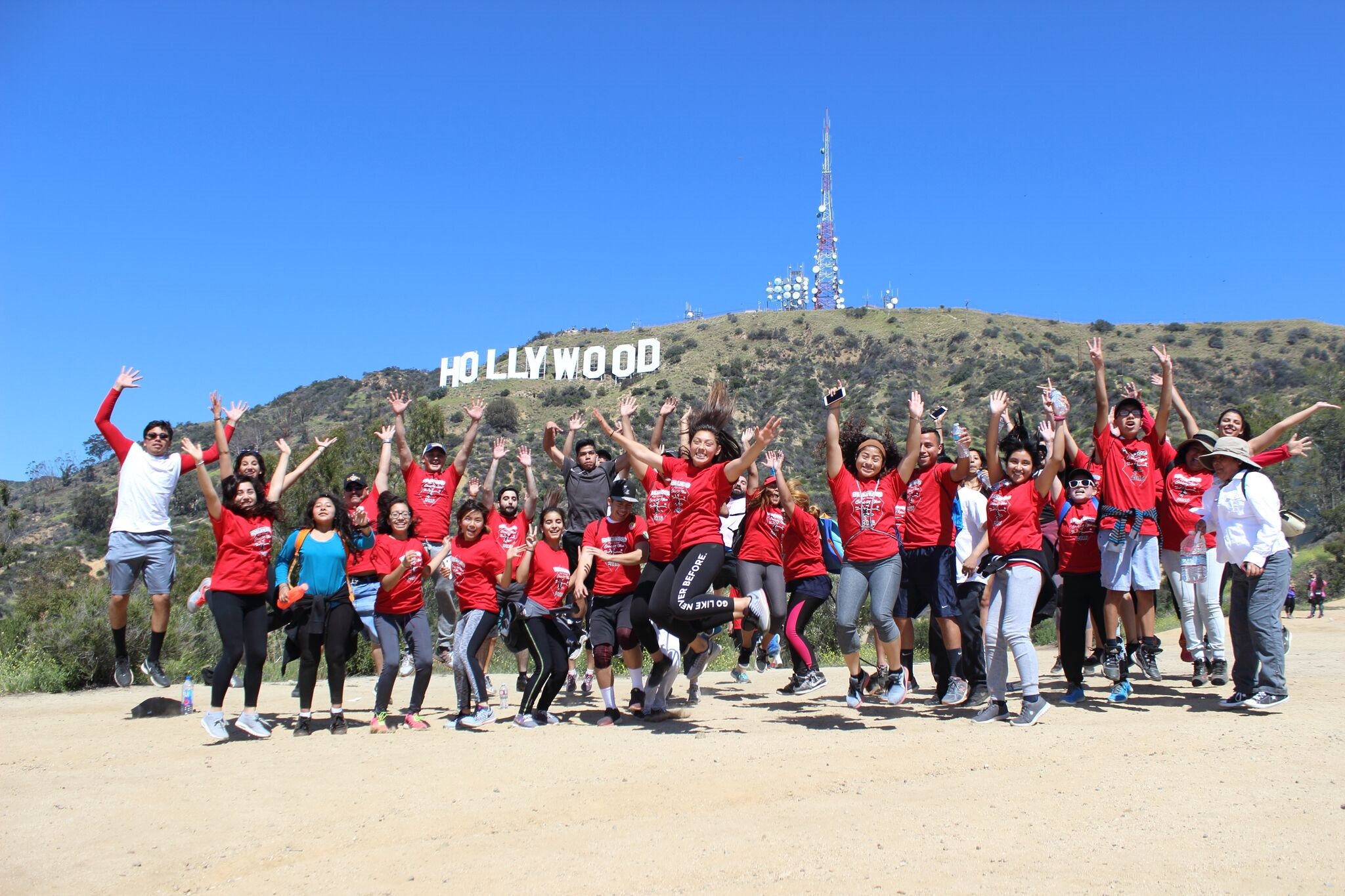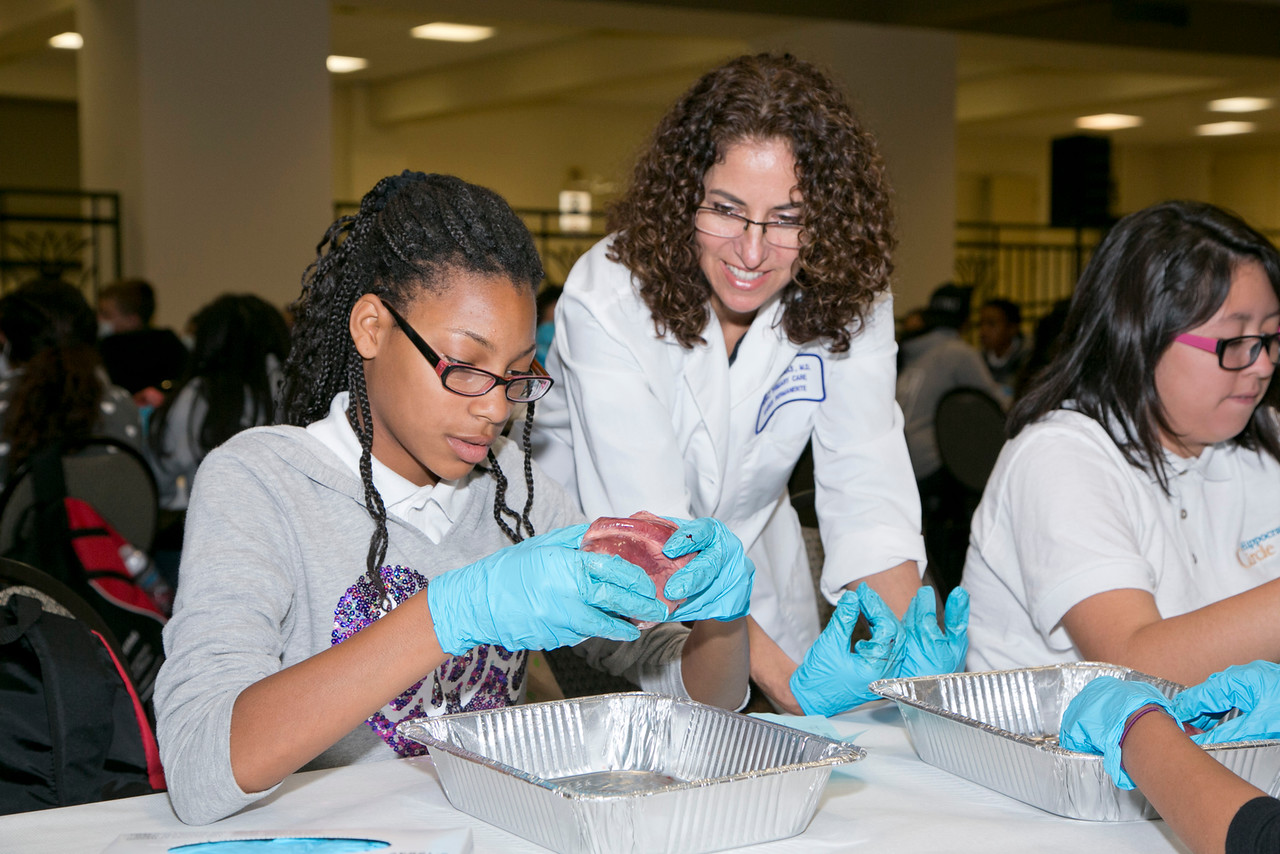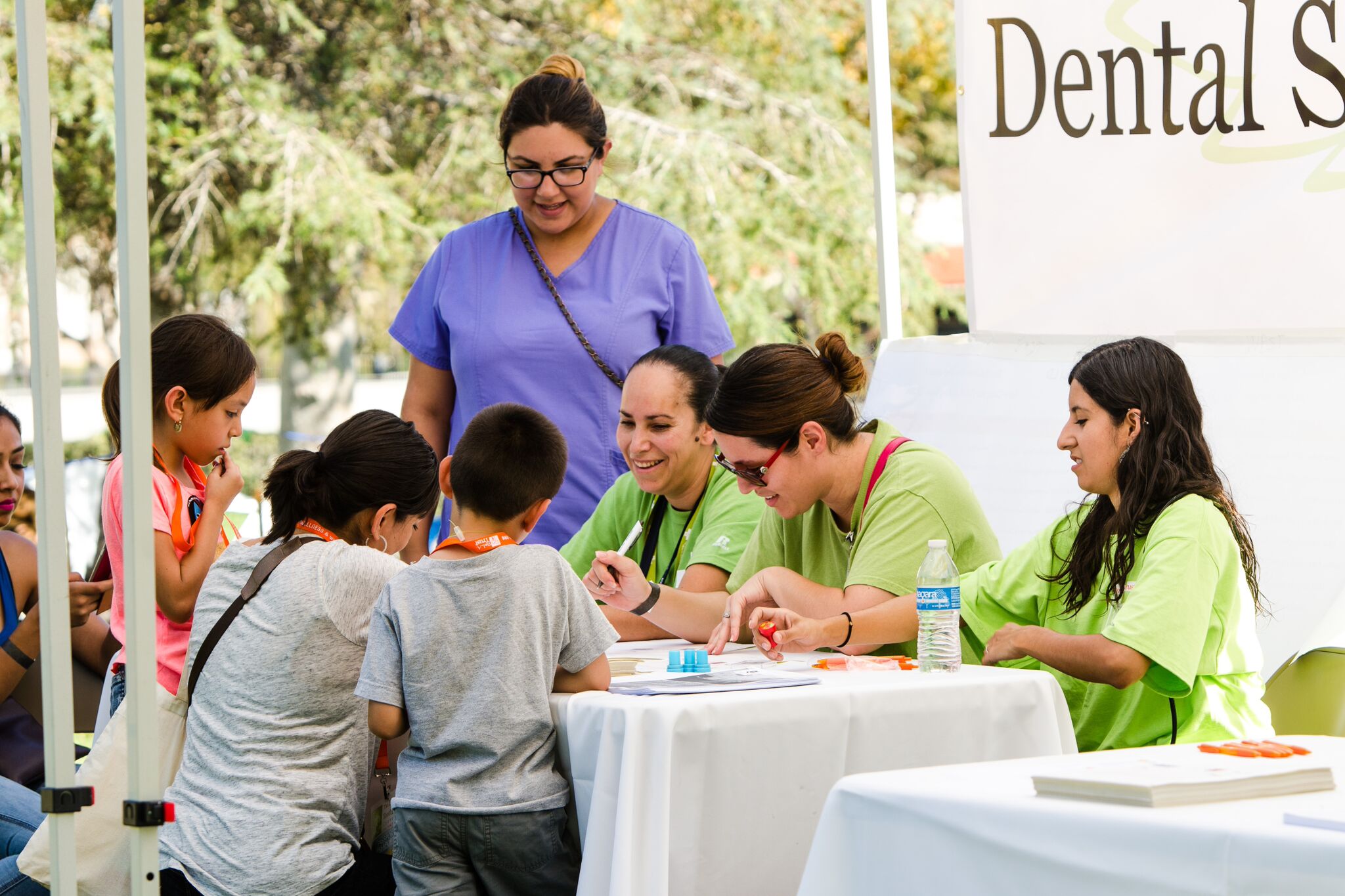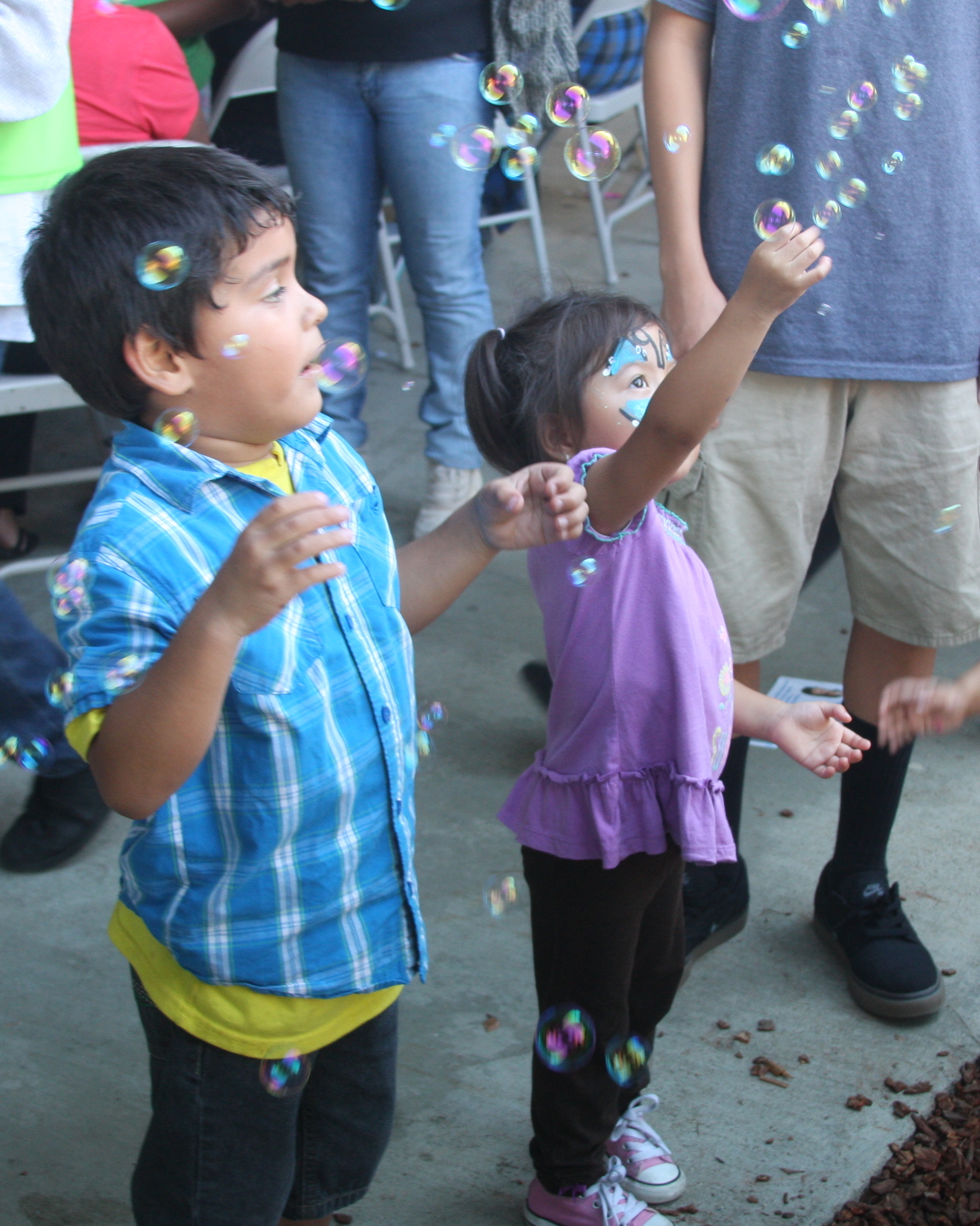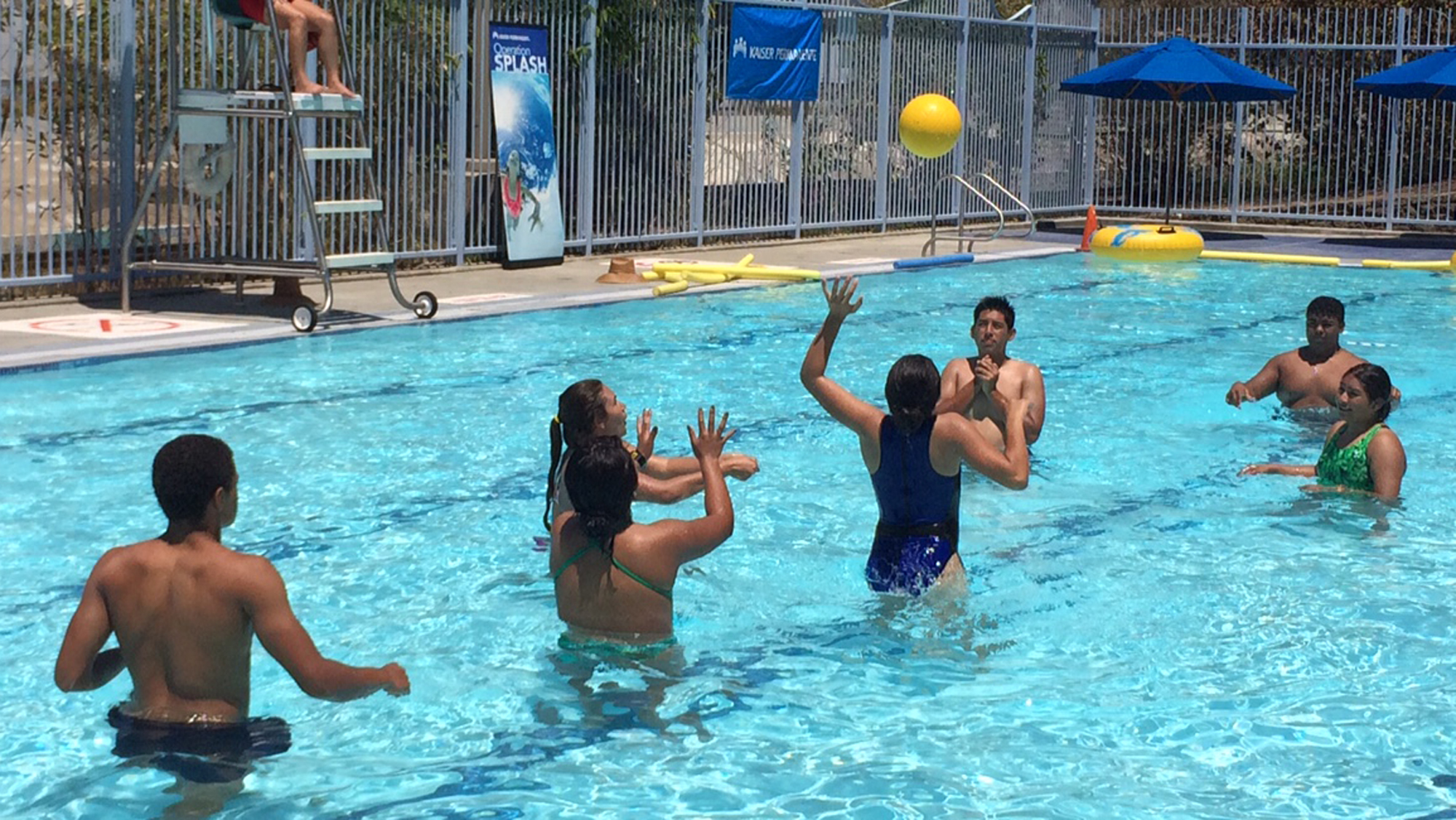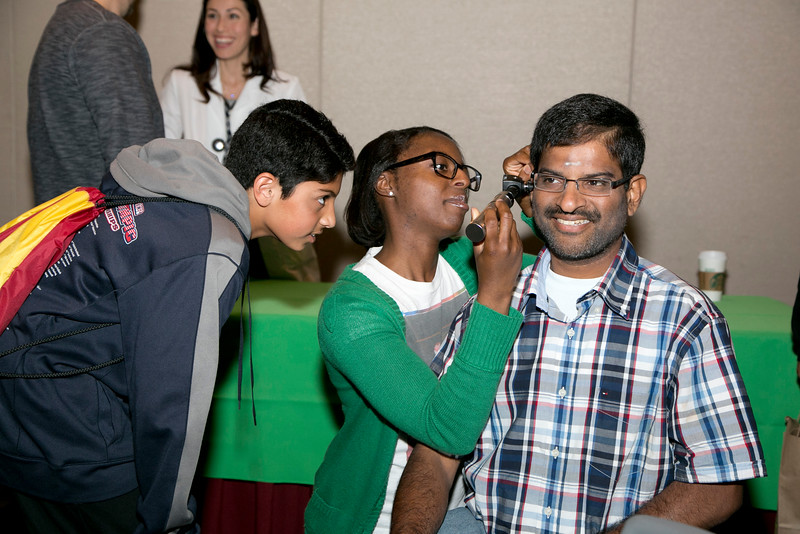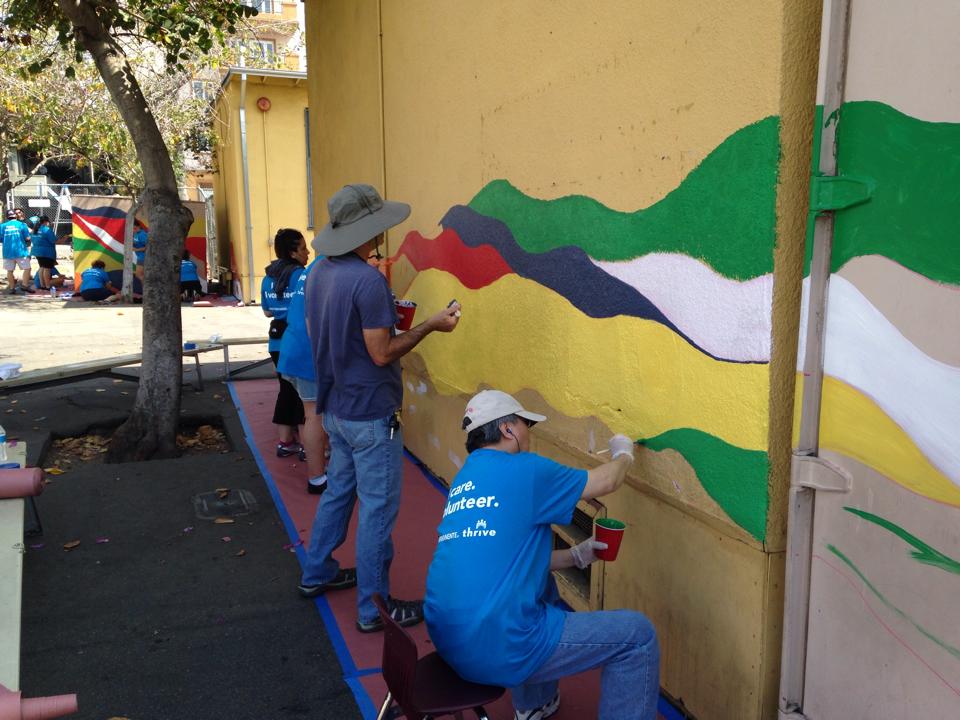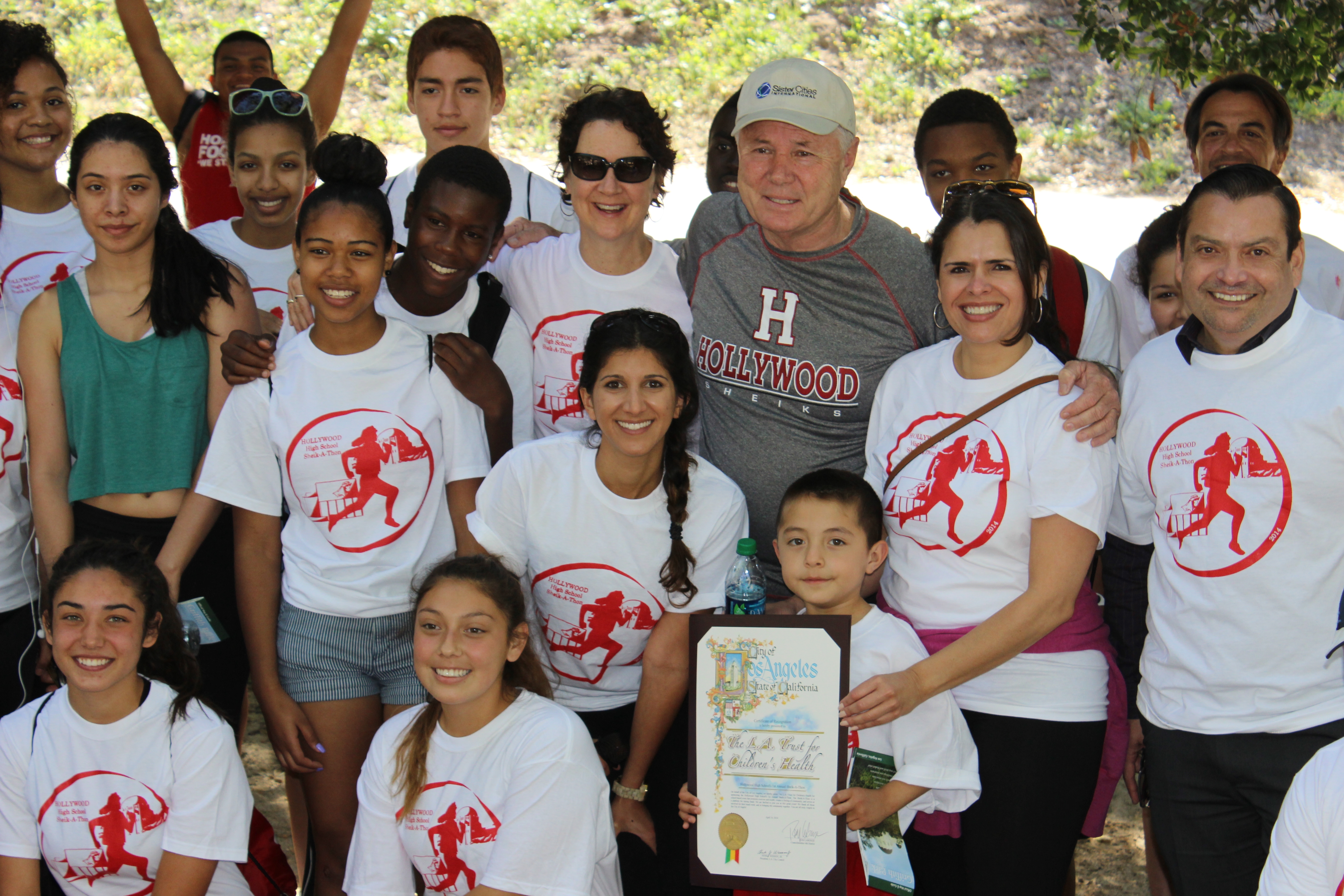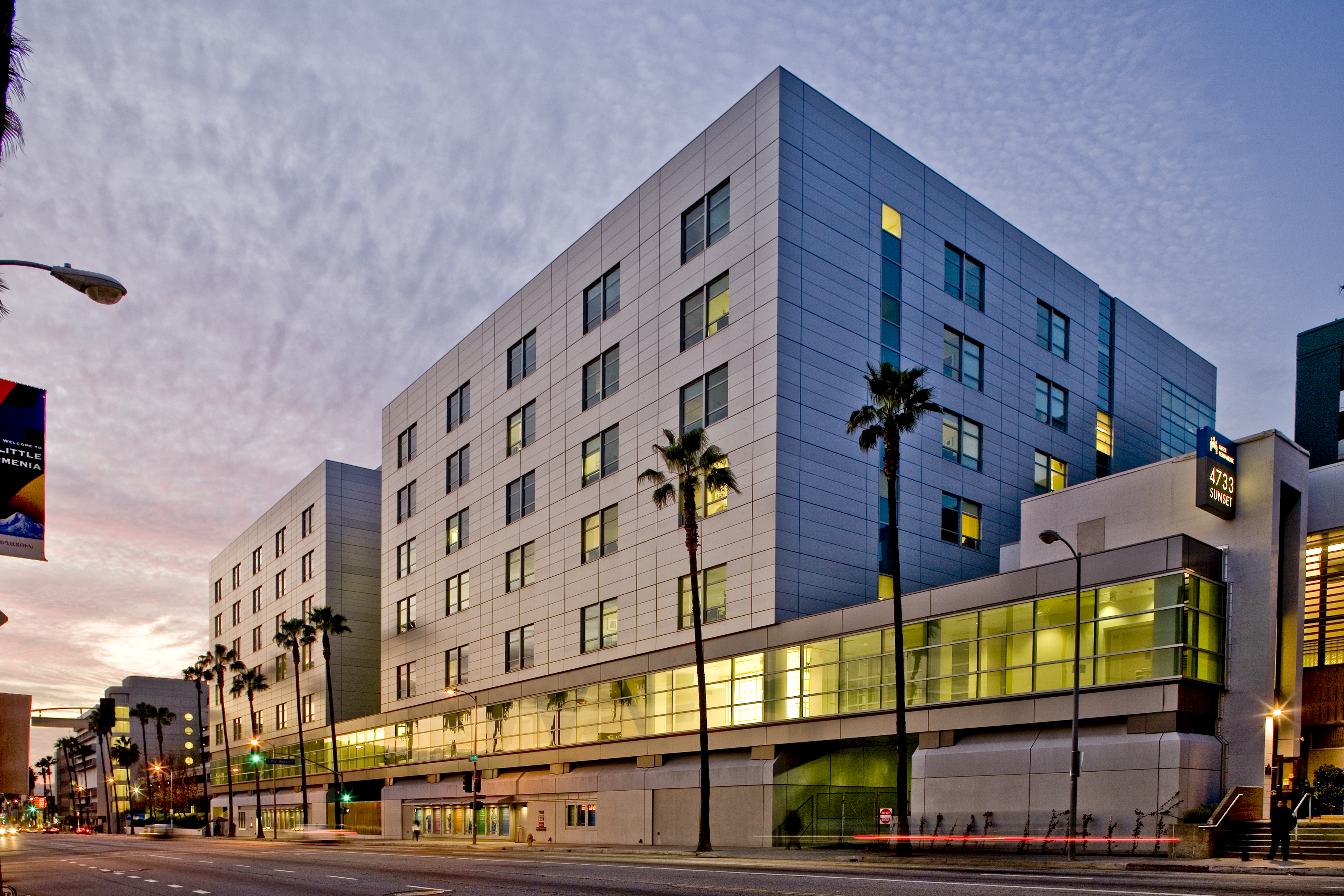
Los Angeles Medical Center
Community Health is central to our mission because healthy communities are where people thrive. Like our approach to medicine, our work in the community takes a prevention-focused, evidence-based approach. In pursuit of our mission we go beyond traditional corporate philanthropy and grant-making to leverage our internal resources with our physician expertise, clinical practices, health education expertise, and technical assistance. Our commitment to community includes a robust engagement process that lifts the voice of community members and highlights priority health needs in our 2022 Community Health Needs Assessments (CHNA). Through this process, Southern California Kaiser Foundation Hospitals identified urgent social and economic factors that negatively impact community health.
Based on the CHNA findings, the 2022 Implementation Strategy (IS) Plans of Southern California Kaiser Foundation Hospitals apply a health equity lens to outline our commitment to invest, partner, and drive change to improve the health of individuals in communities we serve. While each Kaiser Foundation Hospital IS plan is unique to its service area, the high-level focus areas and strategic priorities we aim to address across Southern California in partnership with community organizations are listed below:
Mental and Behavioral Health: Mental & behavioral health affects all areas of life, including a person’s physical well-being, ability to work and perform well in school, and to participate fully in family and community activities. Example measures include access to mental health care, poor mental health and stress, and suicide and deaths of despair (Note: there is a separate need category for substance use).
Income and Employment: Economic opportunity provides individuals with jobs, income, a sense of purpose, and opportunities to improve their economic circumstances over time. Example measures include poverty and unemployment rates, and income inequality.
Housing: Safe and secure housing is essential for the health of individuals and families. Example measures include home ownership and homelessness, housing affordability, quality, and cost burden.
Access to Care: Access to comprehensive, quality health care services is critical for ensuring quality of life. Example measures of access include health care coverage and uninsurance, access to oral health and specialty care, and birth outcomes.
Sexual Health: The need related to individual’s sexual well-being and reproductive health. Example measures include HIV/AIDs, STDs, and teen births.
Structural Racism: Structural racism refers to the normalization and legitimization of an array of dynamics-historical, cultural, institutional and interpersonal-that routinely advantage whites while producing cumulative and chronic adverse outcomes for people of color. It is reflected in health disparities and inequities by race.
Across these areas, we work to inspire and support people to be healthier in all aspects of their lives, and build stronger, healthier communities. In addition to dedicating resources through Community Benefit, we also leverage substantial additional assets that improve community health, including our healthcare workforce volunteerism.
At Kaiser Permanente, we believe in using the full range of our organization’s assets to improve the health of the communities we serve. We regularly gather data and seek input from our community partners and members to inform our investments and to guide the development of strategies that can make long-term, sustainable change and improve health. We are pleased to share our 2022 Community Benefit Year-End report for the Kaiser Foundation Hospital in Los Angeles that summarizes our efforts and highlight specific strategies and resources we deployed to respond to the prioritized health needs in the community.
Note: While Kaiser Permanente is committed to addressing these needs, local medical centers will strategically and carefully invite community partners to apply for funding in order to address needs that align with the local Implementation Strategy Plans, which may have some variations of the strategic priorities listed above. Please scroll down to view the areas that are currently being funded in this medical center.
Recent Related News
- May 22, 2018 – Kaiser Permanente Announces $200 Million Impact Investment, Partners with U.S. Mayors and CEOs
- May 14, 2018 – Kaiser Permanente Joins de Beaumont Foundation as National Partner in CityHealth Initiative
- Jul 07, 2016 – ‘Sideline Care’ is the Call of the Day at Southern California Special Olympics Summer Games
Los Angeles Medical Center Grants Program
The Kaiser Permanente Los Angeles Medical Center 2023 Community Benefit Grants are awarded through a “By Invitation Only” grant process.
Kaiser Permanente Los Angeles provides grants to local nonprofit health and human service organizations that address the priority health needs for its community service area. The current funding priorities, funding timeline, and guidelines on how to apply are provided below. This grant program is “By Invitation Only” and unsolicited funding requests will not be considered.
Prospective grant applicants will be contacted directly and informed that they are being invited to submit a grant application for this year’s grant cycle.
If you would like to apply for Sponsorship Funding for a broader service area in Southern California or Nationally, visit this site for more information and to apply.
If you would like to apply to a local Event Sponsorship, such as special fund raising events (luncheons, recognition dinners); conferences; symposia; public policy briefings; and health education forum; visit this site for more information and to apply.
Note: Make sure that you are submitting your sponsorship request to the appropriate medical center within your agency’s County area; otherwise, your organization’s request may be declined.
Current Grant Funding Priorities
Kaiser Permanente Los Angeles Medical Center is currently focused on supporting the following health needs and related strategic priorities. Reviewing this area will help to ensure that your proposed grant project is aligned with these priorities.
- Support community-based, multi-sector collaborative efforts that support mental health and behavioral health for underserved, low-income individuals and their families.
- Support the infrastructure and capacity building of community organizations and clinics to improve access to quality mental health care Support the integration of mental health care, case management, and navigation services into clinical care and community settings.
- Support the utilization of pipeline and training programs to increase the number of licensed and diverse mental health professionals.
- Support community-based organization capacity building, including but not limited to, staffing, training, leadership development, and policy advocacy.
- Strengthen community networks by supporting community or navigation centers, community advisory councils, and interoperability with other systems.
- Enhance career pathways by partnering with workforce development organizations to develop and implement job training and placement programs, including pre-apprenticeship programs
- Provide resources for preserving or enhancing the supply of affordable housing.
- Support expansion of housing-related legal support for at-risk tenants.
- Enhance the infrastructure and capacity of service providers to serve individuals at risk or experiencing homelessness.
- Support and participate in collaboratives that support coordination and funding of resources (such as health services and housing) for individuals at risk or experiencing homelessness.
- Support organizations that build capacity, provide information about coverage options, assist with eligibility screening, application and enrollment, and advocate for increasing coverage options for low-income individuals.
- Provide core support to safety net organizations, allowing these organizations to implement initiatives appropriate for the needs of their population (e.g., expansion of specialty care, providing more virtual care for nonsurgical specialties).
- Support partnerships with local, regional, or national organizations to grow networks of community-based organizations that address social health needs and coordinate care.
- Build capacity for organizations to expand their offering of evidence-based programs addressing STI/HIV prevention and management, and behavioral and mental health services to BIPOC, LGBTQ+, homeless and other at risk for or with STIs/HIV
- Support Black, Indigenous, People of Color (BIPOC)-led organizations that advance best practices for preventing and/or mitigating the impacts of ACEs, toxic stress, and trauma for communities disproportionately experiencing inequities.
- Support to Black, Indigenous, People of Color (BIPOC)-led organizations, with an emphasis on Black-led.
Applicant Eligibility
To be eligible for a Kaiser Permanente Los Angeles Medical Center Community Health grant, an applicant organization (or fiscal agent), must have operations in California and be one of the following types of nonprofit organizations:
- 501 (c)(3) tax-exempt organization with a 509 (a) designation indicating that the organization is not a private foundation
- A local, state or federal government agency, including any of its subdivisions that perform substantial government functions.
In addition, organizations must:
- Provide direct services and/or programs for disadvantaged and/or underserved populations that address the funding priorities identified above.
- Provide services and/or programs within the geographic boundaries of Kaiser Permanente Los Angeles Service Area, which includes the communities of: Alhambra, Altadena, Arcadia, Burbank, Glendale, La Cañada Flintridge, La Crescenta, Monrovia, Monterey Park, Montrose, Pasadena, San Gabriel, San Marino, Sierra Madre, South Pasadena, Los Angeles ( SPA 4) and the neighborhoods of: Atwater Village, Boyle Heights, Chinatown, City Terrace, Downtown Los Angeles, Eagle Rock, East Los Angeles, Echo Park, El Sereno, Glassell Park, Hancock Park, Highland Park, Hollywood, Hollywood Hills, Laurel Canyon, Los Feliz, Montecito Heights, Silver Lake
Kaiser Permanente Los Angeles Medical Center Community Health does not consider funding requests from international, social, recreational clubs, or for the following:
- Sports teams and tournaments (e.g., golf tournaments, tennis events, walks, and runs)
- Individuals
- Religious purposes
- Partisan political activities
- Endowments or memorials
- Re-granting purposes to other organizations
Kaiser Permanente Los Angeles Medical Center will not consider requests from organizations that discriminate based on gender, age, economic status, educational background, race, color, ancestry, national origin, sexual orientation, gender expression, gender identity, or marital status in your programs, services, policies and administration. In addition, Community Health grants will not be awarded for activities, events, or programs organized or solely sponsored by alcohol, tobacco, pharmaceutical companies, or companies that produce firearms.
We generally do not provide grants for academic research, capital campaigns, event sponsorships (including community health fairs), or political campaigns.
Grant Award Parameters and Considerations
This year, Kaiser Permanente Los Angeles Medical Center will provide 12-month grants whcih range from $25,000 to $50,000.
The considerations listed below will guide the selection of grant awards. Although this is a “By Invitation Only” process it will remain highly competitive. An invitation to apply does not automatically result in final approval for funding at any amount.
- Funding at the higher levels will be based on the strongest grant proposals with clear and measurable objectives with the most impact to the identified populations living in the most underserved communities.
Due to the competitive nature of the grant cycle, applying and meeting these considerations can be useful in submitting a competitive proposal. Please note that invitation to apply does not guarantee funding.
- Project aligns closely with funding priorities and serves our service area.
- Population to be served are identified as highly vulnerable populations. Priority is given to poor/low-income, un/underinsured targeted populations identified in the CHNA and IS Plan.
- Project budget includes other sources of funding and demonstrate sustainability.
- Project objectives are specific, measurable, action-oriented, and time-defined.
- Project/intervention is evidence- based or evidence-informed and addresses multiple drivers comprehensively.
- Proposal demonstrates a clear Equity Lense approach.
- Project leverages existing initiatives and resources. This grant cannot be the only revenue source for sustainability.
To view your submitted application click here.
Grantmaking Contact
By the Numbers
Looking for CHNA Reports?
You can find all the CHNA Reports organized by Year and Medical Center in the Community Health Needs Assessment (CHNA) Section of the Service Areas Page.
Downloads
- Mental Health and Wellness Resources
- Mental Health and Wellness Resources (Spanish)
- Thriving Schools Initiative
- Thriving Schools Integrated Assessment Overview
- Youth Mental health First Aid Training
- Thriving Families
- Educational Theatre Previews
- Inner City Capital Connections Program
- Materials Order Form
